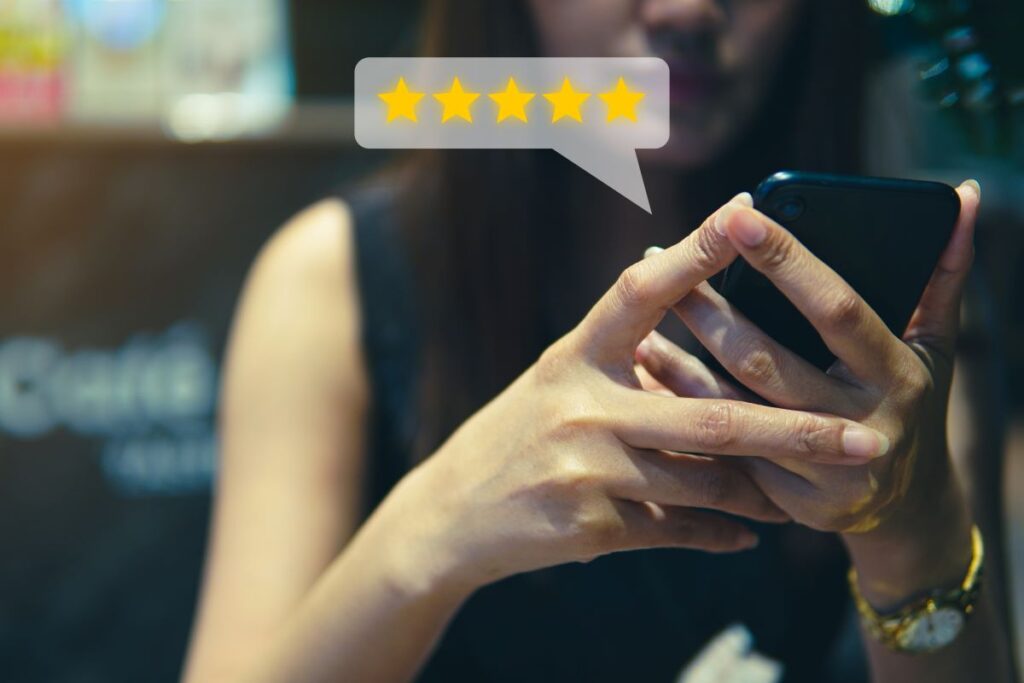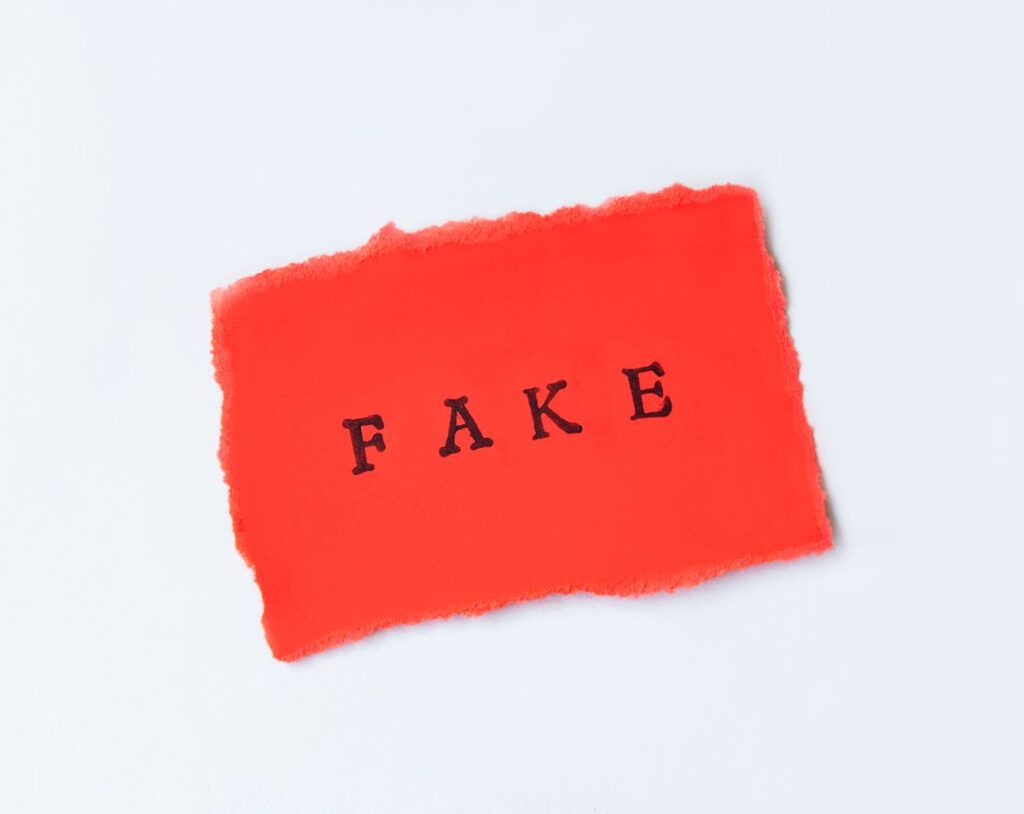Introduction
Online reviews shape almost every purchasing decision today. From restaurants to e-commerce platforms, customer reviews serve as modern-day word of mouth. But a critical question has started to dominate consumer psychology: Are Fake Reviews More Common than real ones?
Surprisingly, studies show that a significant percentage of reviews online are either exaggerated, manipulated, or entirely fabricated. Whether planted by businesses trying to boost their ratings or competitors aiming to damage reputations, fake reviews are now part of the digital landscape.
At the same time, customers rely heavily on these reviews. In fact, surveys reveal that more than 90% of online shoppers read reviews before buying. If shoppers are basing their decisions on potentially unreliable information, the stakes are high.
This article explores the psychology of trust in online reviews, examines the data behind fake reviews, and provides strategies for consumers and businesses alike. By the end, we will not only answer whether Are Fake Reviews More Common than real reviews but also understand how authenticity and transparency impact sales.

The Psychology of Trust and Reviews
To understand Are Fake Reviews More Common, we first need to explore why reviews matter so much in the first place.
Humans rely on social proof—the idea that when others validate a product or service, it must be good. This psychological principle is why customer reviews have become such a powerful part of the buying journey.
- A glowing five-star review reassures shoppers.
- A negative review highlights potential risks.
- A balance of both suggests authenticity.
But when fake reviews enter the mix, they distort social proof. Instead of reflecting real experiences, they create a false sense of trust.

Data Insights: Are Fake Reviews More Common?
Research suggests fake reviews are widespread. According to a report by Which?, nearly one in seven online reviews on major platforms may be fake. Similarly, a study by the Federal Trade Commission (FTC) found that companies spend billions on generating fake testimonials and fabricated ratings.
So, Are Fake Reviews More Common than genuine ones? While not every review is fake, in certain industries—like hospitality, beauty, and electronics—the proportion of fake reviews can outweigh authentic ones.
Estimated Prevalence of Fake Reviews by Industry
| Industry | Estimated % of Fake Reviews | Notes |
|---|---|---|
| Hospitality | 30% | Hotels & resorts often plagued by planted reviews |
| Electronics | 20% | Many sellers inflate ratings to compete |
| Beauty Products | 25% | Influencer-driven markets create fake demand |
| Restaurants | 15% | Competitors sometimes post fake negatives |
Why Businesses Post Fake Reviews
The motivation behind fake reviews is simple: influence consumer behavior.
- Boosting Sales
A flood of positive reviews can make a new product look more reliable, increasing conversions. - Damaging Competitors
Negative fake reviews can reduce trust in a rival, redirecting customers elsewhere. - Manipulating Algorithms
Platforms like Amazon and Google rank products and businesses higher when they receive consistent reviews. Fake reviews exploit this system.
Thus, the core reason we ask Are Fake Reviews More Common is that businesses see them as shortcuts to visibility and success.

How Consumers Detect Fake Reviews
If consumers are questioning Are Fake Reviews More Common, it’s because they have started noticing patterns that make reviews feel unreliable. Detecting fake reviews requires both intuition and analysis, and shoppers are becoming increasingly savvy.
Common Red Flags in Fake Reviews
- Overly Generic Language
Fake reviews often sound vague: “Great product, works perfectly!” without details. Authentic reviews usually mention specifics such as “battery life lasted 12 hours” or “arrived two days late.” - Extreme Positivity or Negativity
Reviews that are only five stars or only one star without nuance raise suspicion. Genuine reviews often include both pros and cons. - Repetition of Keywords
Fake reviews sometimes repeat brand names or phrases excessively to boost SEO rankings within platforms. - Reviewer History
Profiles with little activity or dozens of reviews posted in a short time frame may not be genuine.
How Consumers Spot Fake Reviews
| Red Flag | What It Means | Consumer Response |
|---|---|---|
| Overly generic language | Likely written by bot or marketer | Lower trust |
| Extreme star ratings | Possible manipulation | Look for balance |
| Keyword repetition | SEO-driven fake review | Consider suspicious |
| Unverified reviewer profile | Fake identity or bot | Ignore credibility |
The Psychology of Suspicion
The human brain is wired to notice inconsistencies. When customers wonder Are Fake Reviews More Common, they are responding to cognitive dissonance—the mismatch between what reviews say and what feels believable.
- Negativity Bias: A single suspicious review can overshadow dozens of positive ones.
- Pattern Recognition: Customers instinctively detect repeated phrases or unnatural wording.
- Trust Threshold: Once suspicion is raised, buyers may search for reviews on multiple platforms to verify authenticity.
This means fake reviews don’t always destroy sales outright, but they do delay purchasing decisions.
Platform Responsibility: Why Detection Matters
E-commerce giants like Amazon, Google, and Yelp are investing heavily in AI to detect fake reviews. But as platforms become stricter, fake review tactics evolve.
If we ask Are Fake Reviews More Common, the answer may depend on whether detection tools can keep up with fraud. Consumers now expect platforms to safeguard authenticity, and businesses that rely too heavily on fake reviews risk long-term brand damage.
The Business Impact of Fake Reviews
When asking Are Fake Reviews More Common, it’s not just about consumer perception. Fake reviews also create powerful ripple effects on businesses themselves. From sales to legal consequences, the influence of inauthentic feedback can be both beneficial in the short term and damaging in the long term.
Short-Term Boost in Sales
Fake reviews can temporarily boost sales by creating the illusion of popularity. A flood of five-star ratings convinces new buyers to take a chance. However, the danger is clear: once customers discover the deception, brand trust collapses.
For example:
- A beauty product that launches with hundreds of suspiciously positive reviews may sell well initially.
- But once buyers realize the quality doesn’t match the hype, refund requests skyrocket and the brand suffers permanent damage.
So while fake reviews may push quick conversions, they undermine sustainable growth.
business sales graph with short-term spike

Long-Term Damage to Trust
Trust is the currency of modern commerce. Once lost, it is extremely difficult to regain. If customers start to believe Are Fake Reviews More Common for a particular brand, they may avoid its products altogether.
- Research shows that customers who suspect fake reviews are 70% less likely to purchase from that business again.
- Even one confirmed fake review scandal can ruin years of brand-building efforts.
Impact on Brand Reputation
Fake reviews don’t just affect sales—they also damage brand reputation. Competitors, journalists, and even customers themselves may expose suspicious patterns. The result: negative press, social media backlash, and widespread distrust.
For instance, major online retailers have banned sellers after discovering networks of fake reviews. The brand damage often outlasts the ban itself.
Legal and Regulatory Risks
The legal environment around fake reviews is tightening. Regulatory bodies like the FTC (Federal Trade Commission) in the U.S. and the CMA (Competition and Markets Authority) in the U.K. actively monitor online review manipulation.
- Companies caught posting or buying fake reviews can face hefty fines.
- Some businesses have been forced into public settlements, creating PR disasters.
This means the real answer to Are Fake Reviews More Common has legal implications: the more common they are, the more scrutiny businesses face.
Business Impact of Fake Reviews
| Impact Area | Short-Term Effect | Long-Term Effect |
|---|---|---|
| Sales | Temporary boost in conversions | Decline due to distrust |
| Customer Trust | Increases briefly with inflated ratings | Collapses once deception revealed |
| Brand Reputation | Appears popular and reliable | Risk of exposure, bad PR |
| Legal Risks | May go unnoticed at first | Regulatory fines, lawsuits |
Why Authenticity Wins in the End
The real question—Are Fake Reviews More Common—forces businesses to choose between short-term gain and long-term credibility. While fake reviews may temporarily improve visibility, they rarely create loyal customers. Authentic reviews, even negative ones, provide the foundation for sustainable success.

Case Studies: When Fake Reviews Backfired
Case Study 1: Amazon Sellers Exposed
Amazon has been at the center of the debate on Are Fake Reviews More Common. Several sellers were banned after being caught using third-party services to flood their product listings with fake five-star reviews. While sales initially skyrocketed, once the scandal broke, thousands of customers demanded refunds and the sellers lost their marketplace privileges.
Case Study 2: Restaurant Review Manipulation
A London-based restaurant was found guilty of paying for fake positive reviews on TripAdvisor to increase foot traffic. Initially, reservations surged, but investigative journalism exposed the scheme. The restaurant not only lost its credibility but also suffered permanent brand damage.
Case Study 3: Beauty Brand Review Fraud
In the beauty industry, Are Fake Reviews More Common is often answered with a strong “yes.” One skincare company boosted sales by paying influencers to leave fabricated reviews on multiple platforms. Eventually, consumer watchdogs caught on, and the brand faced both financial penalties and widespread distrust.
How Businesses Can Combat Fake Reviews
If businesses want to avoid the trap of fake reviews, they need clear strategies to foster authenticity.
1. Encourage Genuine Reviews
Request feedback directly from real customers through verified purchases. This not only increases authenticity but also builds credibility.
2. Use Verification Systems
Platforms like Amazon use “Verified Purchase” tags to distinguish real reviews. Businesses should adopt similar systems where possible.
3. Monitor Review Patterns
Track unusual spikes in ratings or repetitive language. Tools powered by AI can flag suspicious reviews early.
4. Be Transparent with Negative Feedback
Not every review will be positive, and that’s okay. Allowing constructive criticism demonstrates honesty and builds trust.
5. Educate Customers
If buyers are asking Are Fake Reviews More Common, educate them about your commitment to authenticity. Transparency creates loyalty.

Strategies to Prevent Fake Reviews
| Strategy | Benefit | Example |
|---|---|---|
| Verified Purchases Only | Ensures real customer feedback | Amazon tags |
| AI-Powered Monitoring | Detects suspicious review activity | Sentiment analysis tools |
| Open Negative Feedback | Builds trust and authenticity | Public responses |
| Customer Education | Strengthens brand loyalty | FAQ pages, blog posts |
The Role of Consumers in Combating Fake Reviews
Consumers also play a role in addressing Are Fake Reviews More Common. By learning how to spot red flags and reporting suspicious activity, customers help clean up online marketplaces. Platforms increasingly rely on user reports to maintain integrity.
Conclusion: Are Fake Reviews More Common?
So, are fake reviews more common than real ones? The answer depends on the industry and platform, but evidence suggests that fake reviews make up a significant portion of online feedback. In some cases, they may even outnumber authentic ones, especially in competitive markets like hospitality, beauty, and electronics.
The psychology of trust, the temptation for businesses to manipulate perception, and the challenge for platforms to detect fraud all contribute to this reality. While fake reviews can provide a short-term sales boost, they carry severe long-term risks—loss of customer trust, brand damage, and even legal consequences.
Ultimately, authenticity wins. Customers value transparency, and businesses that embrace real feedback, even negative, build stronger loyalty and more sustainable success. In a digital world where many ask Are Fake Reviews More Common, the brands that prioritize honesty will always stand out.

1. Are Fake Reviews More Common on certain platforms?
Yes, Are Fake Reviews More Common on platforms like Amazon, TripAdvisor, and Yelp where competition is fierce. These industries see higher manipulation rates due to their reliance on reviews for visibility.
2. How can I tell if a review is fake?
To answer Are Fake Reviews More Common, look for red flags like generic wording, repetitive phrases, extreme positivity or negativity, and reviewers with little profile history. Verified purchase labels are usually more trustworthy. For more community insights, check this Reddit discussion on how common fake reviews really are.
3. Do fake reviews actually influence buying decisions?
Yes. Even though customers are becoming skeptical, fake reviews still influence buying behavior. In fact, the reason people ask Are Fake Reviews More Common is because they recognize how much reviews affect trust and decision-making.
4. Can negative reviews be more trustworthy than positive ones?
Surprisingly, yes. A mix of positive and negative reviews feels more authentic. If you’re asking Are Fake Reviews More Common, remember that only-5-star feedback may actually be less trustworthy than a mix of ratings.
5. What happens if a business gets caught using fake reviews?
Businesses risk fines, bans from platforms, and long-term reputation damage. The more people believe Are Fake Reviews More Common, the more they question the integrity of businesses caught in these scandals.
6. How can businesses protect themselves from fake reviews?
Companies can use verification systems, AI-based monitoring, and open communication with customers. Addressing whether Are Fake Reviews More Common directly in customer education also helps strengthen trust.
7. Do negative reviews hurt sales more than fake ones?
Not always. Sometimes authentic negative reviews can actually help a business by making the overall feedback look more real. Instead of asking only Are Fake Reviews More Common, many brands now study how negative reviews affect trust. You can learn more in our blog Negative Reviews and Sales: Can Bad Feedback Actually Boost Business?.
8. Why do some reviews influence buyers more than others?
The reason isn’t just about star ratings. Reviews that tell detailed stories or mention personal experiences are often more persuasive than generic ones. If you’re wondering Are Fake Reviews More Common, remember that even a single detailed authentic review can outweigh dozens of vague ones. Check our in-depth post Why Do Some Reviews Influence Buyers More Than Others?.

